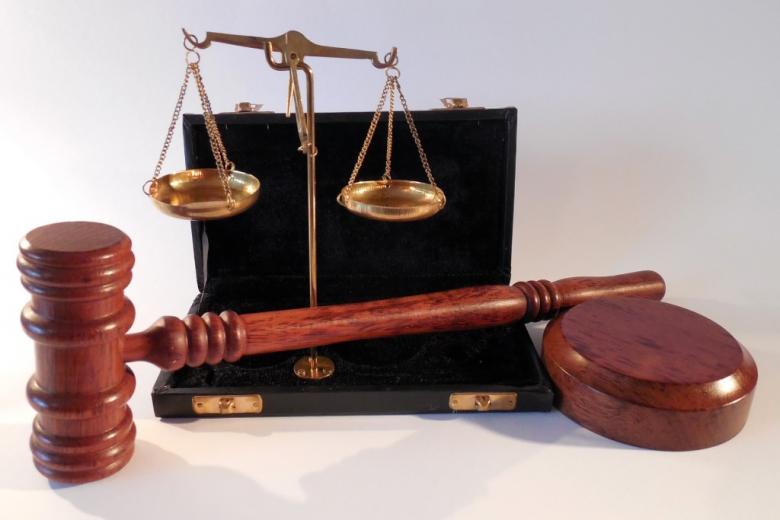Participation of CHR in the hearing before the European Court of Justice in the case concerning nominations of Supreme Court judges
On Monday, 6 July 2020, a hearing at the Court of Justice in Luxembourg took place before the Grand Chamber concerning the process of appointment of judges of the Supreme Court (Case C-824/18 A.B. and others). The main question raised in this case is whether the limitation of the effectiveness and then the complete exclusion (in 2018) of the possibility to appeal against the new NCJ appointments is compatible with the EU principle of effective legal protection.
The proceedings were initiated by preliminary questions submitted by the Supreme Administrative Court as a result of appeals filed by those candidates for judges to the Supreme Court, whom the new NCJ refused to recommend. Despite the decisions of the Supreme Administrative Court suspending the execution of NCJ resolutions, they were passed on to the President of the Republic, and the candidates nominated in them received the acts of appointment as Supreme Court judges. The appointments were therefore made in violation of the law, based on non-final and unenforceable motions of the NCJ, and the candidates who received negative opinions of the Council were prevented from carrying out a genuine judicial control of the appointment process. First, already during the selection procedure, the rules were changed and the effectiveness of the appeal (if later admitted) and the reversibility of the situation were radically reduced. Then, the possibility to appeal against NCJ resolutions recommending nominees to the Supreme Court was entirely abolished and the appeal proceedings already pending before the NSA were ordered to be discontinued by law. It appears that the nomination process from 2018 onwards was intentionally designed to ensure that only those supported by political authorities would become judges of the Supreme Court.
The Commissioner for Human Rights who joined the national case pending before the Supreme Administrative Court is also a party to preliminary proceeding before the European Court of Justice. During the hearing, the discussion focused on the extent to which the qualification procedure to the Supreme Court was covered by the principle of effective legal protection (Article 19(1)(2) TEU) and the impact of the lack of judicial review on the independence and impartiality of judges. The key issue to which the ECJ should respond is to indicate to the referring court the manner of further proceedings, which in turn involves determining whether and, if so, to what extent the principle of effective judicial protection has a direct effect.
The Commissioner’s position in this case was presented at the hearing by Maciej Taborowski, Deputy Commissioner for Human Rights. The basic theses of the submissions can be summarised as follows:
- We are not claiming that Art. 19(1)(2) TEU requires the establishment of a uniform model for the judicial review of the process of appointing judges in all Member States. However, States must, in the light of Article 19 TEU, provide conditions to exclude any reasonable doubt as to the independence of the appointed judges (formula from the ECJ judgment of 19 November 2019 in C-585/18, C-824/18 and C-825/18 A.K. and Others). For this purpose, they may but are not obliged to introduce judicial review of the procedure for appointing judges.
- The specific features of the legal system of a particular Member State may result in that the exclusion of such control may constitute an infringement of Article 19 (1) (2) TEU. Polish law creates a general right to appeal against NCJ resolutions (judgment of the Constitutional Tribunal in Case SK 57/06). This right is not a consequence of the requirements of Article 19(1) (2) TEU itself, but it is rooted in the domestic law.
- In violation of the standards of effective legal protection, judicial review was intentionally and arbitrarily excluded only in relation to a selected category of nomination proceedings (to the Supreme Court), by virtue of the ruling of the Constitutional Tribunal which eliminated such review performed by the Supreme Administrative Court, stating at the same time that such control should be carried out by the Supreme Court (judgment of the Constitutional Tribunal in case K 12/18) and the subsequent legislative amendment of 26 April 2019 which excluded that control completely.
- The national court (Supreme Administrative Court), by virtue of the principle of the primacy of EU law and in the light of the principle of loyal cooperation, should be able to disapply national legislative, administrative or judicial practice impeding the standards of Article 19 (1) (2) TEU.
During the hearing, oral submissions were also made by the applicants' attorneys and representatives of the National Council of the Judiciary, the General Prosecutor's Office, the Republic of Poland (Ministry of Justice), as well as the European Commission.

